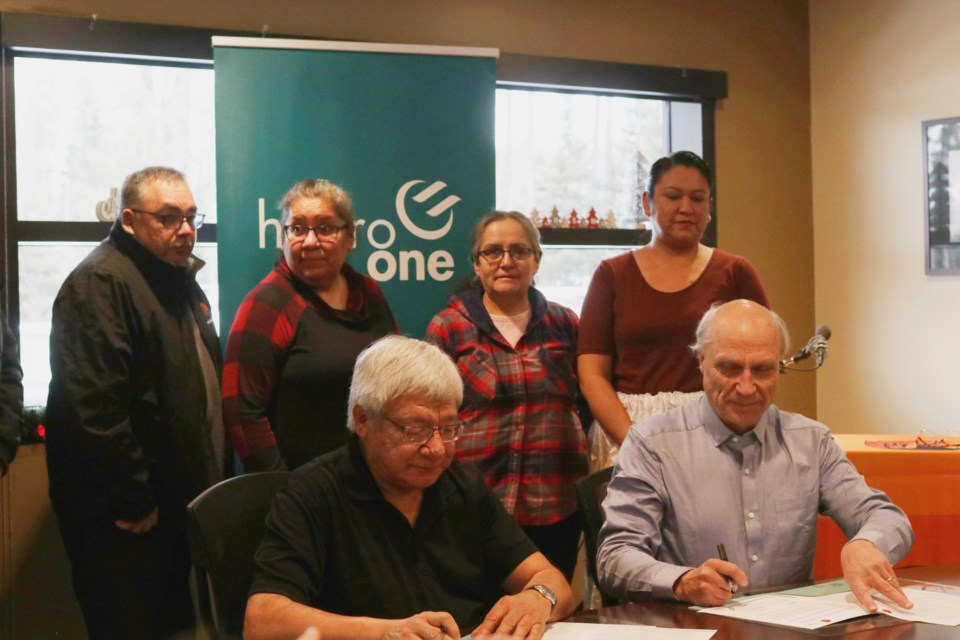Indigenous communities have a new energy partner.
Five Nations Energy Inc. and Hydro One have signed a partnership to increase economic development in energy for First Nations and Indigenous participation in energy sector projects. This includes planning, development, and building of future transmission line projects
“We recognize that through partnership, we can do so much more, and we recognize that we want to change the perspective,” said Hydro One CEO David Lebeter. “So when a project goes ahead it leaves a lasting legacy for the people who live in that area, which is very different than how it’s been done in the past.”
Five Nations Energy is Indigenous-owned and provides electricity through transmission lines from Moosonee to Fort Albany, Kashechewan, and Attawapiskat. It also offers high-speed internet and telecommunications to those communities.
Five Nations Energy CEO Pat Chilton said it’s an excellent chance for growth in First Nations communities.
RELATED: How Five Nations Energy powered the James Bay coast
“It’s a huge economic development opportunity, not only for training people for lines, electricians, and everything, but also after the lines are built, there’s maintenance, and there’s a lot of potential for employment for First Nations,” he said.
Five Nations Energy also hopes to share what they’ve learned through the last 25 years with other First Nations as more communities get involved in energy projects.
“In the first part, the vision was to create reliable energy into the communities that desperately need it, and now opportunities arise to expand that vision,” said Lawrence Martin, Five Nations Energy board chair. “There are First Nations along transmission lines that we think should be involved, and also create the same kind of Five Nations energy entity where they can actually own part of that line.”
Sharing knowledge is a part of the vision going forward, said Chilton.
“There’s also other opportunities throughout the province. We want to work on those too and see what we can do to provide some assistance to First Nations,” he said. “We want to get people off diesel.”
The long-term economic growth is a focus for the partnership, but a shift on Hydro One’s side is an important part of the journey, said Lebeter.
“People asked, and my board asked the question why, as I’m sure Pat’s board asked him the question, why,” said —. “One, it’s the right thing to do. We’re better together, we’re stronger, and we can go further. There’s so much opportunity in the energy sector in the coming decades; why wouldn’t we share that? Why wouldn’t we form a partnership with someone we can learn from?”
That willingness to work together and to learn from Indigenous people is part of the reason the partnership came to be, said Chilton.
“We chose the right partner,” he said.
The agreement details will be worked out after consultation with First Nations over the next six months.



